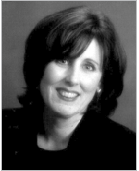Meet an Access to Justice Fellow: Paula Mackin

Paula Mackin retired from her solo practice in 2010, after over 35 years of work focused on children’s civil rights and adoption law. When she heard about the Access to Justice Fellows Program, she thought it sounded like a good way to stay active and engaged.
“I was looking for post-retirement structure,” she said. “I had done the gardening, and learning Italian, and lots of reading, and I wanted to do more.”
Through meetings with the program’s Oversight Committee, she was connected with the Massachusetts Society for the Prevention of Cruelty to Children (MSPCC), a nonprofit organization that advocates for children and their families and provides direct services, such as adoption support and parent education courses. There she started work on the Opportunity to Be Heard project.
During her one-year fellowship with MSPCC, Mackin drew on her years of experience working with foster families during adoption cases. Throughout her career, she had heard from many foster parents who were denied a chance to speak on behalf of the children in their care during court proceedings. Often, foster parents are best able to provide insight into the child’s status and needs, but when they are not given a chance to share their observations, the court is deprived of essential evidence of best interests.
Mackin then conducted research by reaching out to foster parent organizations and their individual members. Using their stories and her own expertise, she prepared training materials for foster and pre-adoptive parents. The materials serve as a guide on how to appear in court, and include templates for a notice of intention to appear and for writing an affidavit.
Mackin then traveled around Massachusetts, conducting trainings for foster parent groups.
“The training is designed to let people know about [their right to appear in court], but also to try and maximize their opportunity and chance to be heard effectively. So we spend a lot of time talking about the affidavit, and what is hearsay, and what is opinion, and how their direct observations of the child are the best and most credible evidence that they could present,” she said.
To increase the reach of the program, Mackin sought out foster parents who had been in court and who would be willing to serve as mentors to others. She also built up a network of volunteer attorneys interested in helping foster parents.
Though Mackin’s fellowship is coming to a close (the 2014 Fellows Graduation will be held on June 19), she has no plans to stop working with MSPCC. Moving forward, she hopes to continue growing the program, getting more mentors and attorneys, seeking funding for the program and distributing her guide more widely. She also has plans to consult on enforcement measures.
“It’s been very exciting and rewarding for me,” she said. “As a practicing lawyer, you can’t take on a wide-scope project like this, but as a Fellow, you can make real and meaningful change. It’s been great.”